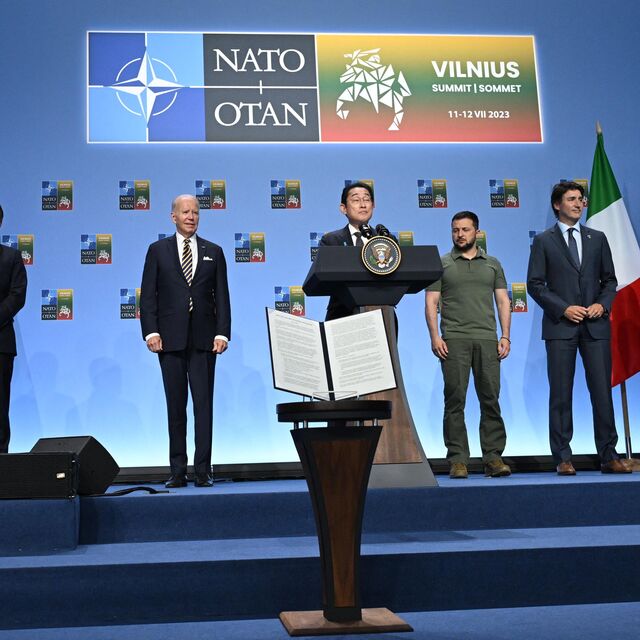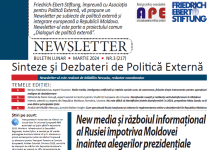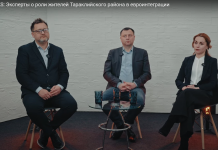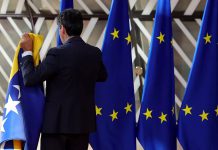BRIEF INFORMATION AND ANALYTICAL NOTE
Natalia STERCUL, Nicoleta ADAM,
Foreign Policy Association
Lithuania hosted this year’s NATO Summit on 11-12 July 2023, a historic gathering that shaped the future of the Western Alliance and addressed the most demanding security issues of the last decade. Perhaps the most important topic discussed during the Summit was related to the future of the relationship between Ukraine and NATO, as many expected that during this event the pathway to joining the Alliance would become more or less clear for the leaders in Kyiv. Sweden’s NATO membership has also been on the agenda, as Turkey has finally dropped its objections to Sweden joining the Alliance. The Republic of Moldova was also not left without any attention, as the Allies demanded in a press release the withdrawal of the Russian troops from the Transnistrian region of the Republic of Moldova.
In the attempt to further address the most pressing challenges for the Alliance, NATO leaders have gathered in Vilnius for a two-day Summit that tackled the most urgent issues on the world‘s security agenda. The war in Ukraine featured heavily in the talks of the high leaders, but US officials have ruled out Ukraine joining NATO as a member coming out of this meeting. President Zelensky was obviously unhappy with the reluctance of the Allies to give an invitation of membership to Ukraine, claiming that the decision not to set a timeline for Ukraine’s joining was “absurd”. While the Allies did agree to remove one requirement for Ukrainian entrance to the group – a Membership Action Plan – given Kyiv’s close relationship with NATO nations, it did not provide a firm timeline for when the Ukrainians will become official members. Secretary General Jens Stoltenberg said that Allies will invite Ukraine to join the military alliance “when conditions are met”. President Joe Biden also admitted that Ukraine is not ready to join NATO, and that Russia’s war in Ukraine needs to end before the Alliance can consider adding Kyiv to its ranks. One of the major outcomes of the Summit was the formation of the inaugural NATO-Ukraine Council, which will function as a platform for Kyiv and the Alliance’s 31 members to consult and make decisions together. It is understood that the Council will also serve as a means by which Kyiv can call crisis meetings, as well as deepen the scope of its cooperation with the Alliance.
NATO leaders agreed on bilateral security guarantees for Ukraine while also launching additional military packages. President Zelensky met with German Chancellor Olaf Scholz, Canadian Prime Minister Justin Trudeau, and U.K. Prime Minister Rishi Sunak on the second day of NATO’s Vilnius Summit. He announced that Ukraine will receive new Patriot systems and missiles from Germany, as well as armoured vehicles from Canada. Ukraine also signed two agreements with Sweden over defense procurements and the Intel exchange, and Australia pledged to deliver another 30 Bushmaster armored vehicles. In spite of a “clear path” towards Ukraine’s membership in NATO being underlined by President Biden, the Kyiv administration expressed discontent over the lack of a real timeframe and invitation to join NATO. Even though the idea is highly supported by several NATO members, mainly Eastern European countries and the UK, Germany and US are highly opposing the prospects of Ukraine becoming a member of the Alliance while it is at war with Russia, one of the world’s nuclear powers, and insist that Ukraine must undertake other reforms of its political, financial and judicial systems to qualify for membership. At the same time, not setting clear parameters for Ukraine‘s accession might be perceived as a sign of weakness by the Kremlin leaders, who can take advantage of the Alliance‘s indecision in order to prolong the war.
A historic decision was agreed on the eve of the Summit, as Turkey has finally agreed to clear the way for Sweden to join NATO after months of opposing the deal. The Russian invasion of Ukraine was a shock to Sweden, a country with a long history of military nonalignment, pushing it to seek membership in NATO, which it had been reluctant to do. The membership of Finland, which formally joined the Alliance in April 2023, and that of Sweden essentially turns the Baltic Sea into a NATO-dominated waterway, one that enhances NATO’s ability to protect its most vulnerable members: the Baltic nations. That includes the site of the Summit, Lithuania, which borders both Russia and Belarus.
The situation in the Republic of Moldova was one of the topics discussed at the NATO Summit. On the sidelines of the event, the Minister of Foreign Affairs Nicu Popescu had several meetings with counterparts and officials present at the gathering, during which he presented the developments related to regional security, the risks generated by the war in Ukraine, and the measures that the authorities are taking to counter the complex challenges to the country’s security. The Minister reviewed the priorities of the Chisinau government, especially the efforts dedicated to the implementation of reforms to advance the EU accession process and the modernization of the country, while NATO Ministers appreciated the contribution of Moldova to strengthening regional security by participating in peacekeeping operations. Deputy Secretary General Mircea Geoana assured that NATO will continue to support the European path of the Republic of Moldova, during a meeting of foreign ministers from NATO countries and those from the partner states – the Republic of Moldova, Georgia and Bosnia, which the official presided over. Moreover, NATO asked the Russian Federation to withdraw its military troops from the territory of the Republic of Moldova in a joint declaration adopted by the member countries on the first day of the Summit in Vilnius.
The NATO summit in Vilnius was focused, in large part, on the problem of Ukraine and ended with additional security guarantees, even if the goal expected by the leaders in Kiev was not reached – that of receiving an invitation to become a NATO member. Instead, the Allies decided to grant additional packages of military support, including in the configuration of the G7 countries. A positive result of the Summit is the withdrawal of Turkey’s blockade regarding the acceptance of Sweden in NATO, which could become the 32nd member of the Alliance. For the Republic of Moldova, this Summit meant an additional confirmation of support for the commitments made by the pro-European government, especially for strengthening resistance, defense and security capabilities. Also, the reiteration of the message sent to the Russian Federation to withdraw its military troops from the Transnistrian region is extremely important, as the regional security environment causes concerns about the subsequent developments and dynamics.







